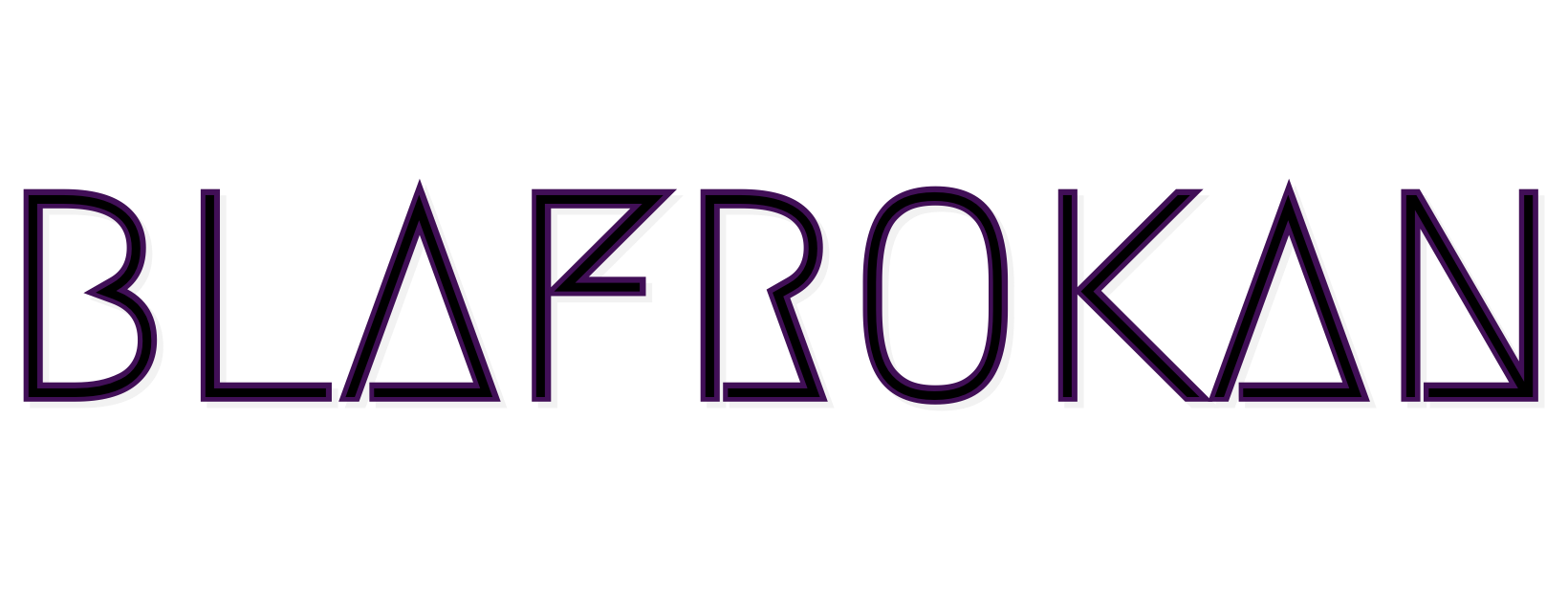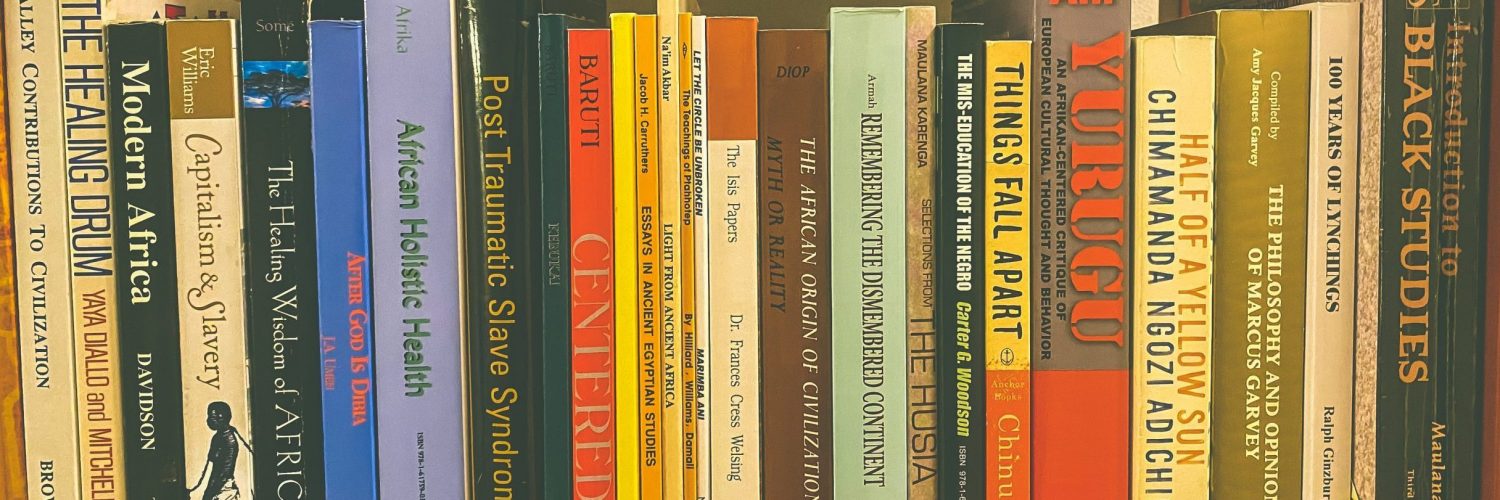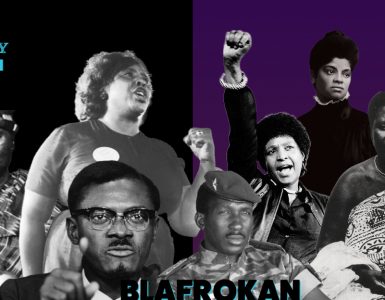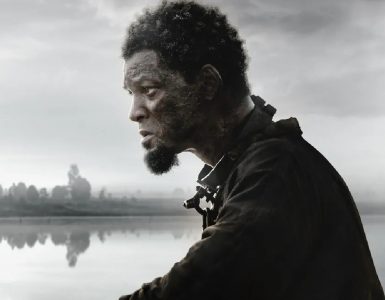In the United States the attacks against “wokeness” in public discourse and education is relentless. Essentially there is a ban on truth! Republican policymakers are accelerating their offensive attacks to insure American students are anesthetized into a “sunken place” mis-educational stupor. The anti-African or ant-Black intellectual assault has deemed once approved and requisite books banned, lesson plans which never taught CRT critical race theory scrapped, and the eradication of AP African-American studies curricula in states such as Florida for being “racially offensive” and “anti-American”. The truth must be sanitized for white “fragile” sake as it will undoubtedly illuminate the country’s egregious foundations of genocidal and enslaving history, culture, politics and behavior woven into the fabric, forever staining old glory.
The attempt to bleach America’s sins away is one thing. However, the aim to uphold a narrative that riddles the self efficacy of Black/African and non-White students for the sake of inflating fantastical self images of white students and society is a form of psychological abuse, pillared by structural racism in American education institutions.
Black History Week then Month was created to counter the false ‘white supremacist” narratives. It’s our responsibility to keep that same Black History Month Blackity Black BLACKx INFINITY energy 365 days a year! Now is the time to proactively self educate ourselves, form and support existing African centered community educational institutions, programs and classes. The importance of African-American households having libraries, study groups, and reading as families to improve knowledge of self is a critical act of self-preservation; lest we forget and fall victim to the evolved tactics of our self proclaimed enemies. Lest we remember and learn from our story, so we can move effectively strategize for survival, mount ironclad defenses for our self affirmation and progeny, and build the future we seek that is best for a wholistic African reality.
If you’re not sure where to start, check out Knarrative and In Class With Carr! Dr. Greg Kimathi Carr is an Associate Professor of Africana Studies and Chair of the Department of Afro-American Studies at Howard University and Adjunct Faculty at the Howard School of Law. He highlighted a book for each day of Black History Month and does an amazing job of storytelling and educating the common person to the most learned scholars while making sure to leave no person behind! STAY WOKE!
Please purchase from a Black Owned Bookstore near you.
Day 1, Book 1: On the day @CollegeBoard released #APAfricanAmericanStudies course framework, Woodson & Wesley’s “The Negro in Our History,” one of thousands of school texts centering Africans in the US taught over two centuries. Fight on, ‘til victory.
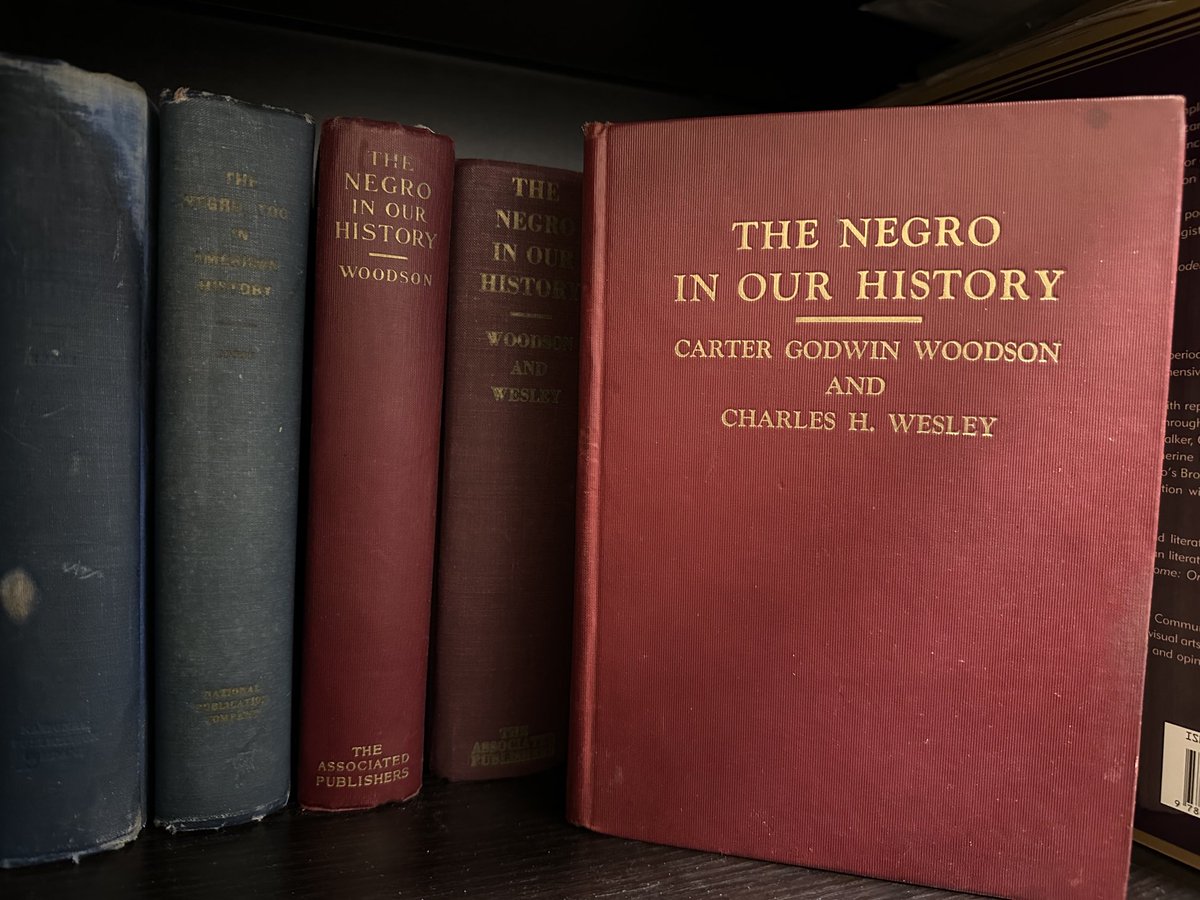
Day 2, Book 2: Prof. Kwasi Konadu’s biography of Graçia, Mónica and Adwoa, three 16th century African women who resisted the Portuguese with Ways of Knowing, Cultural Meaning Making and Movement and Memory anchored in themselves and their people.

Day 3, book 3: @CAU Professor @danieloblack ‘s first essay collection, Black On Black,” an unvarnished and soaring examination of being African in the US. Black is a long-standing force in our communities: Many others are about to find out why.

Day 4, Book 4: “The Last Gift of the Master Artists,” Ben Okri’s long-awaited rewrite of his 2007 novel “Starbook.” Immersed in African throughout and beyond time and space, Okri draws on enslavement to consider continuing themes of love, pain and liberation.
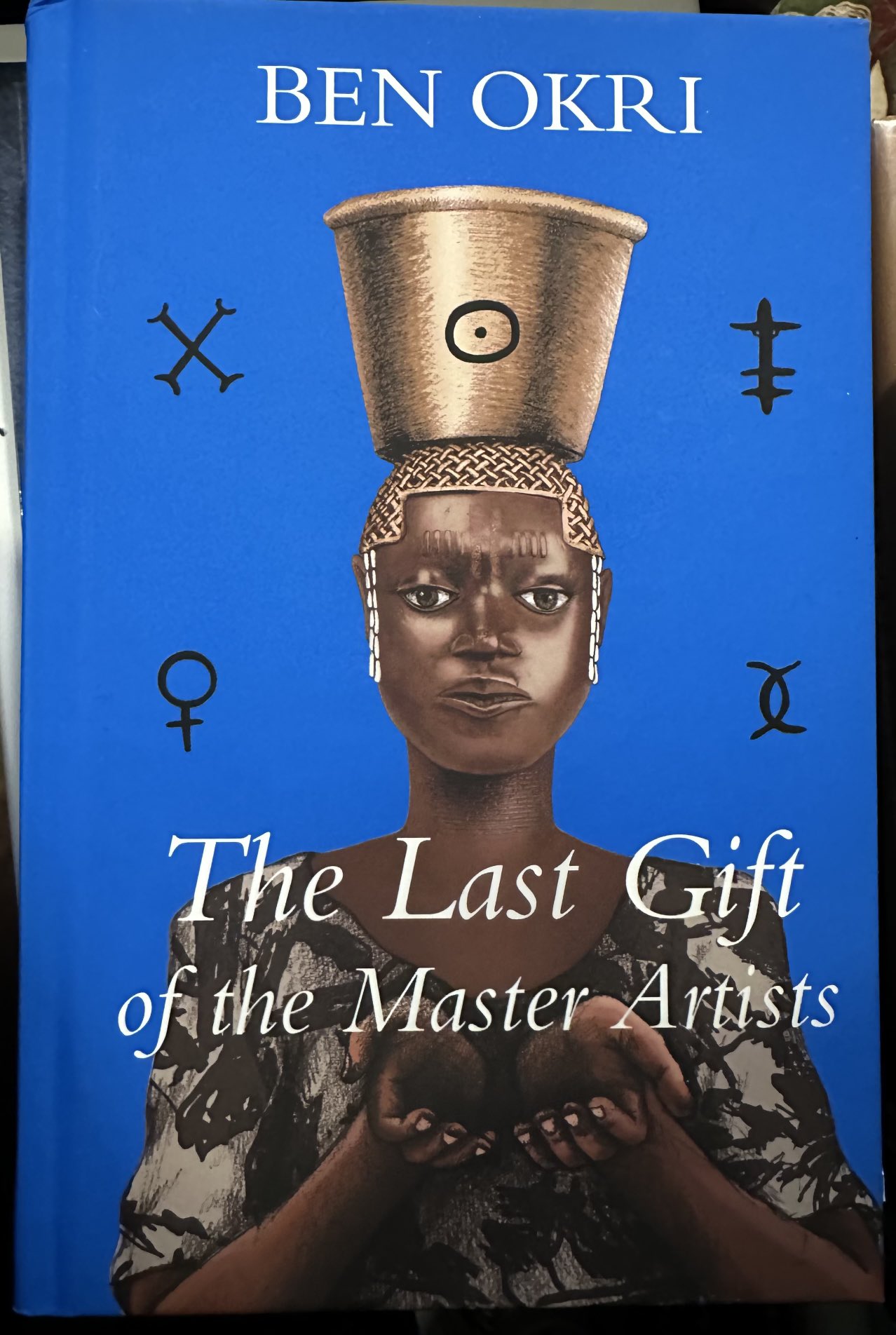
Day Five, Book Five: Obi Egbuna Sr’s 1971memoir and manifesto on Black Power in Britain, “Destroy This Temple,” written in captivity. The new Black Classic Press edition includes an introduction by Obi Egbuna Jr. This is a Pan African Sebayt.
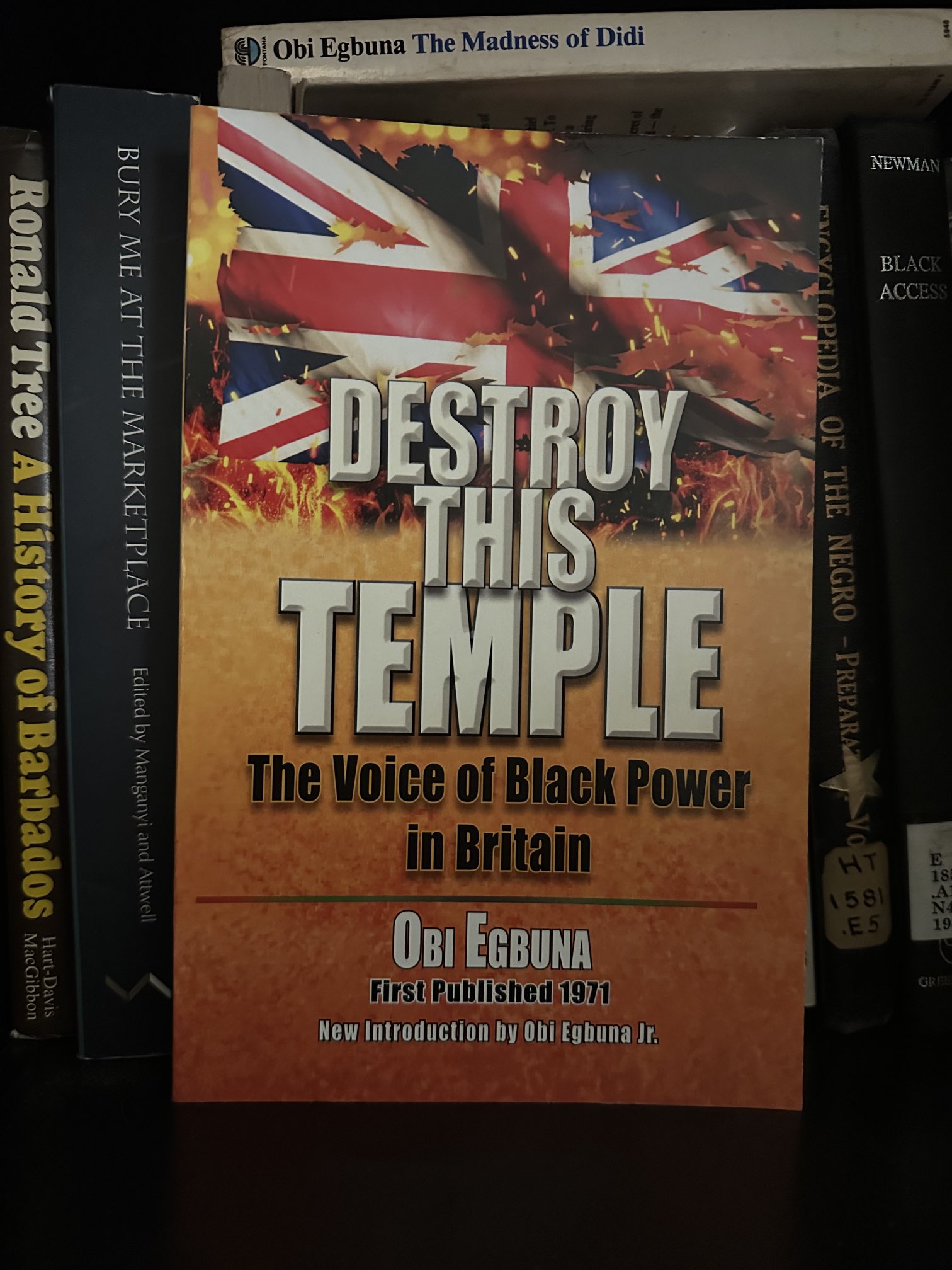
Day 6, Book 6: Brian Jones @brainyandbrawny ‘s “The @TuskegeeUniv Student Uprising,” tracing the full arc of a Deep South HBCU and the long African liberation struggle in the US and beyond. Hear him discuss his work at #TheBlackTable : https://www.youtube.com/watch?v=_cvxSaxr700

Day 7 Book 7: “African and Caribbean People in Britain,” @hakimadi1 ‘s sweeping history of Africans in Britain, from earliest times and each stage of the creation and recreation of the country through today.
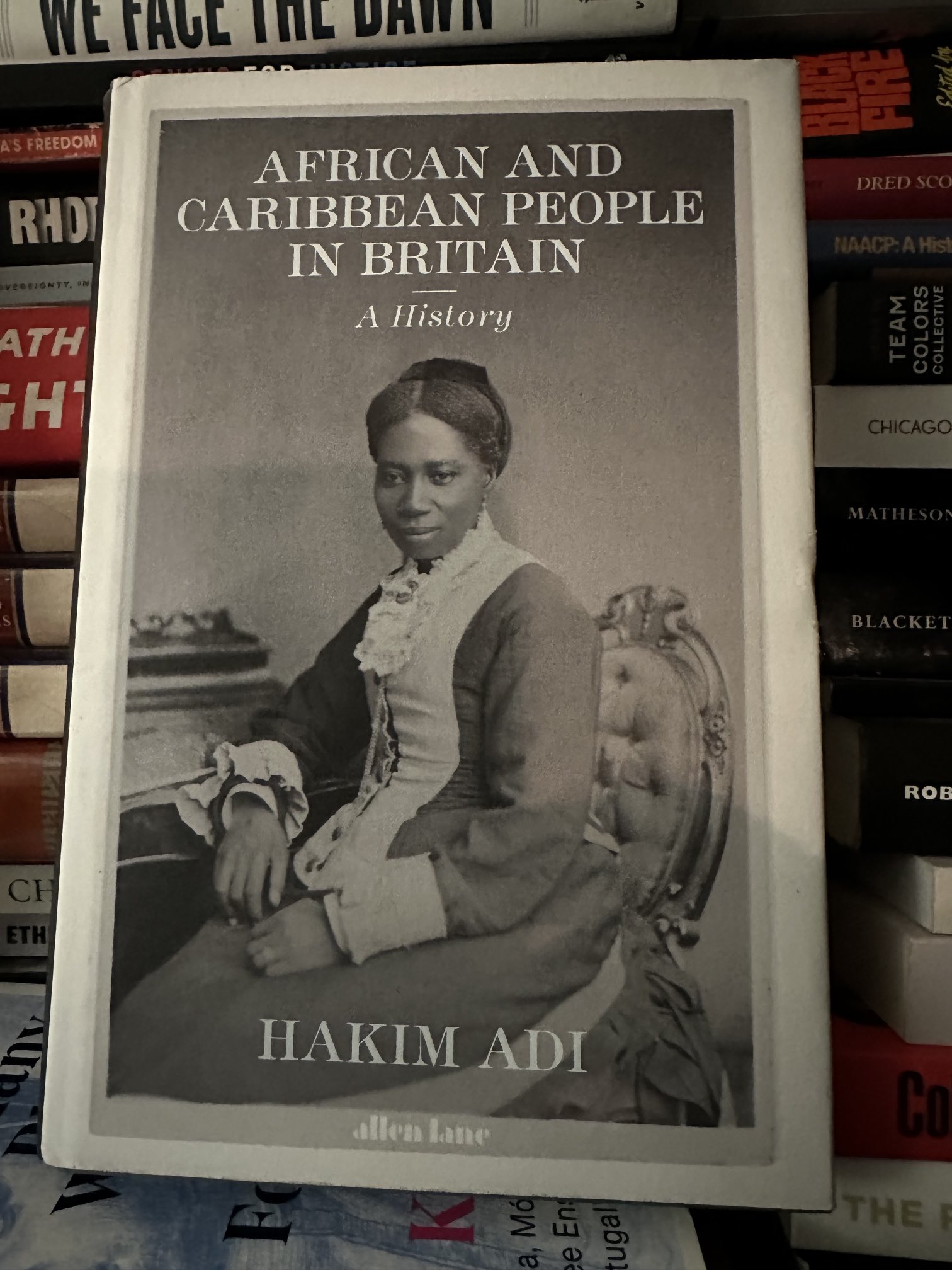
Day 8, Book 8: Malaika Horne’s biography/history of the life, times & community of Flora Dell Horne, “Mother Wit.” From Mississippi to St Louis to the world, she shaped generations through her life and those of her children (including her historian son Gerald).
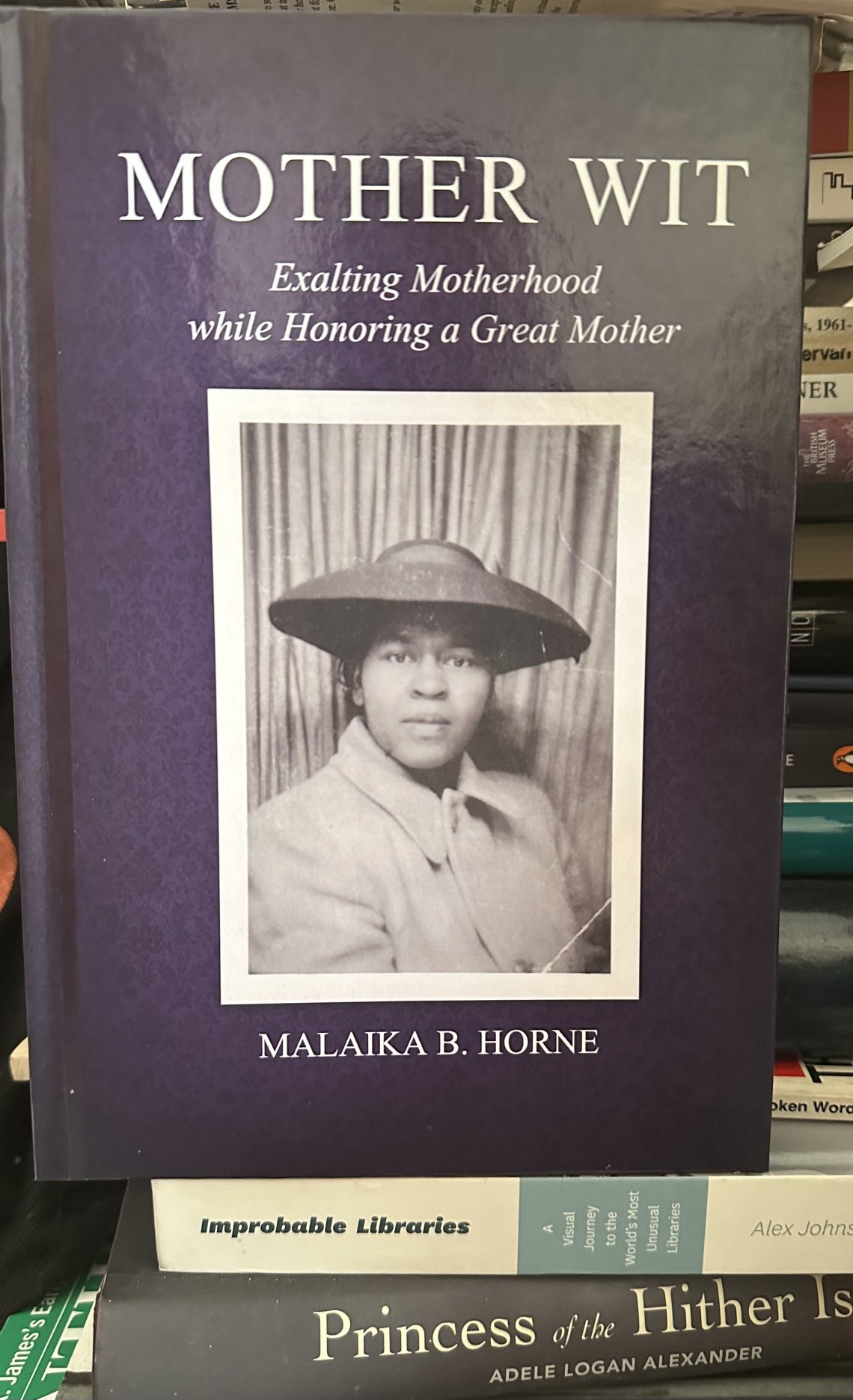
Day 9 Book 9: “All Your Racial Problems Will Soon End,” a career-spanning sampling of cartoon work from the artist, writer, academic and intellectual Charles Johnson. Before every other pursuit for which we know him, he was a cartoonist. #CulturalMeaningMaking
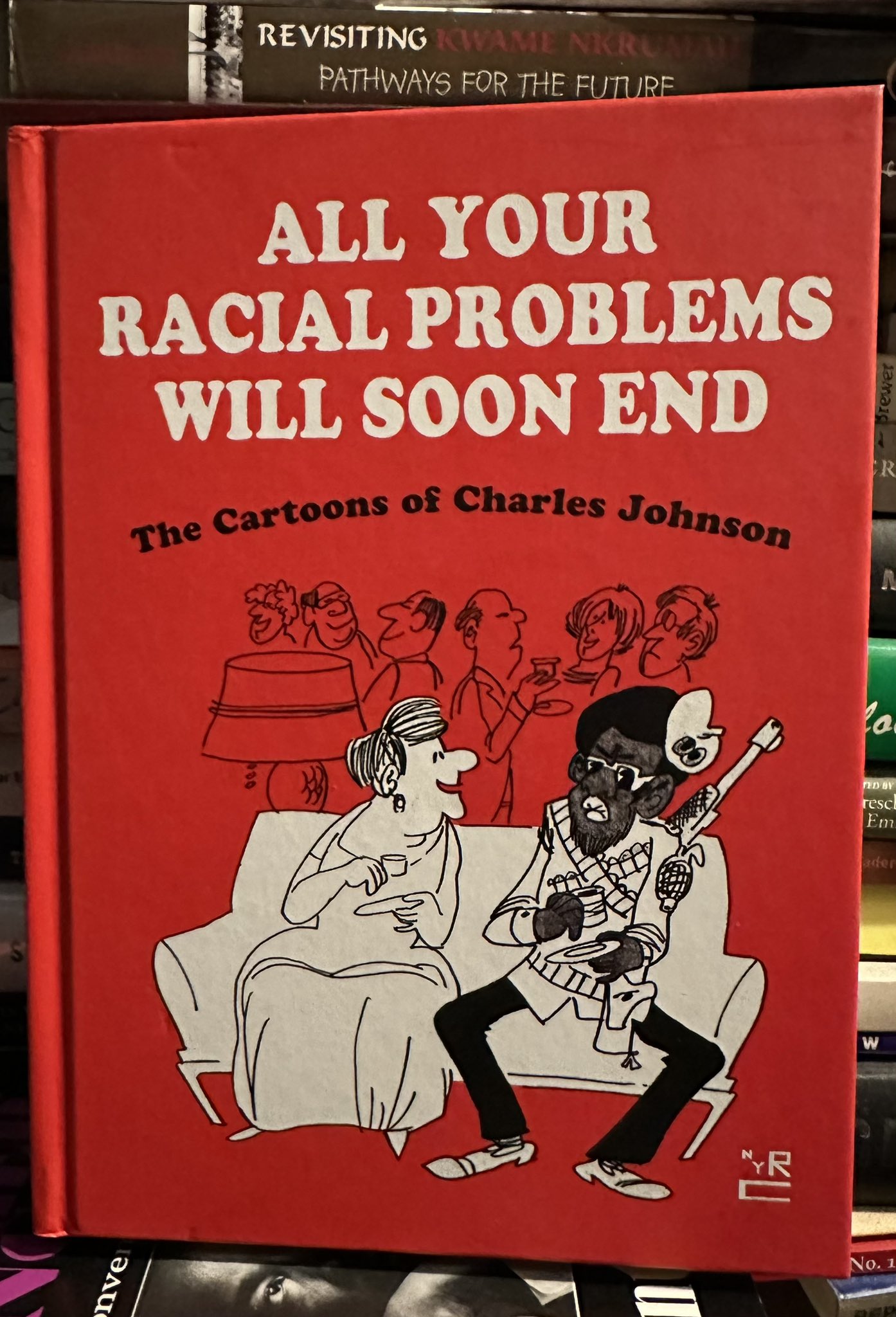
Day 10, Book 10: @histresist ‘s global thematic narration of how the “modern world” has come to be, “Colonialism in Global Perspective.” An excellent grounding text for understanding the world we live in and what we must confront to change it for the better.
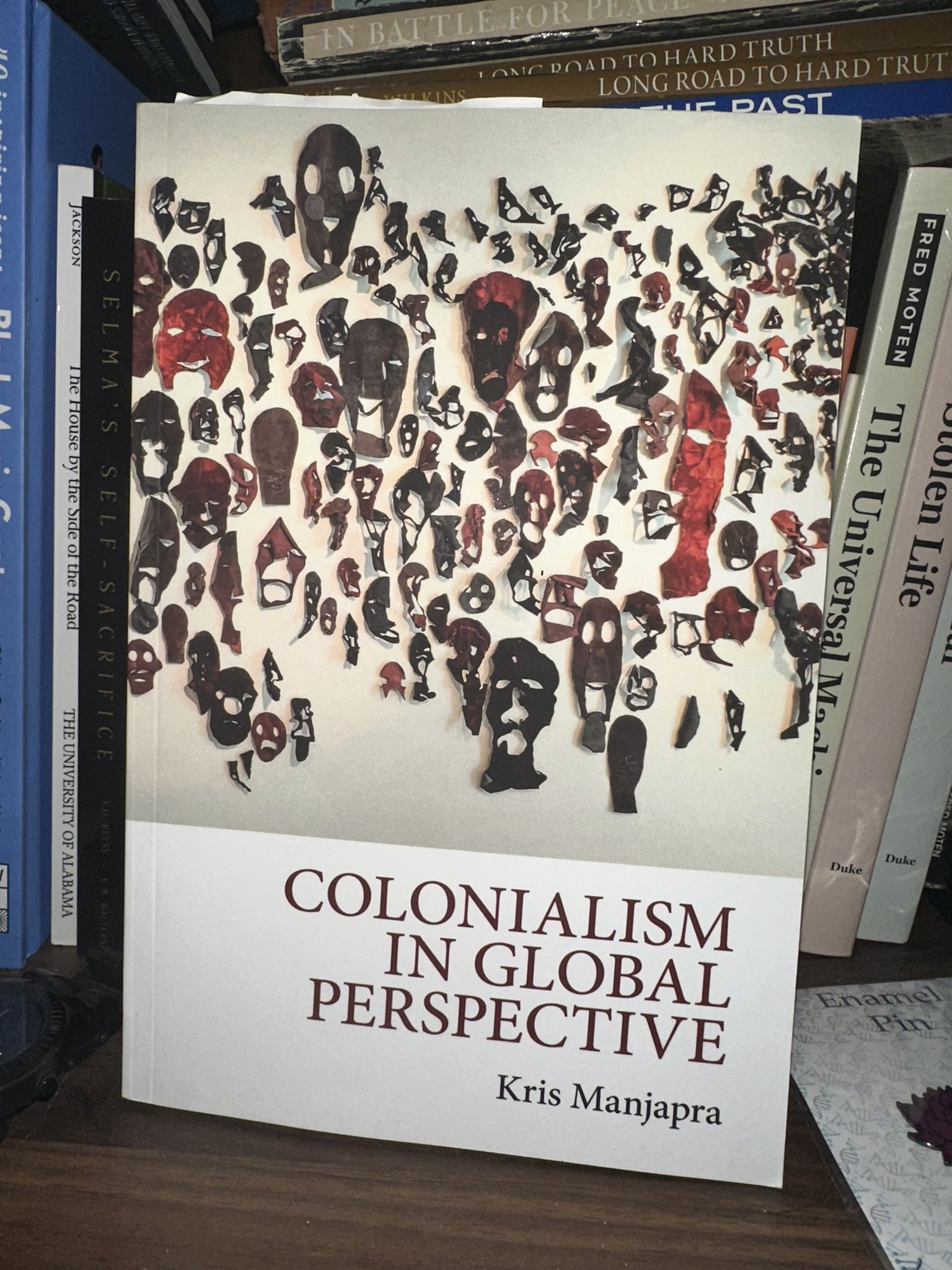
Day 11, Book 11: On @NAACP ‘s 114th birthday weekend, this nearly 500 page image journey of the organization over the first century of its existence, from the organization and its @thecrisismag . A decade by decade account. We discuss today @inclasswithcarr .
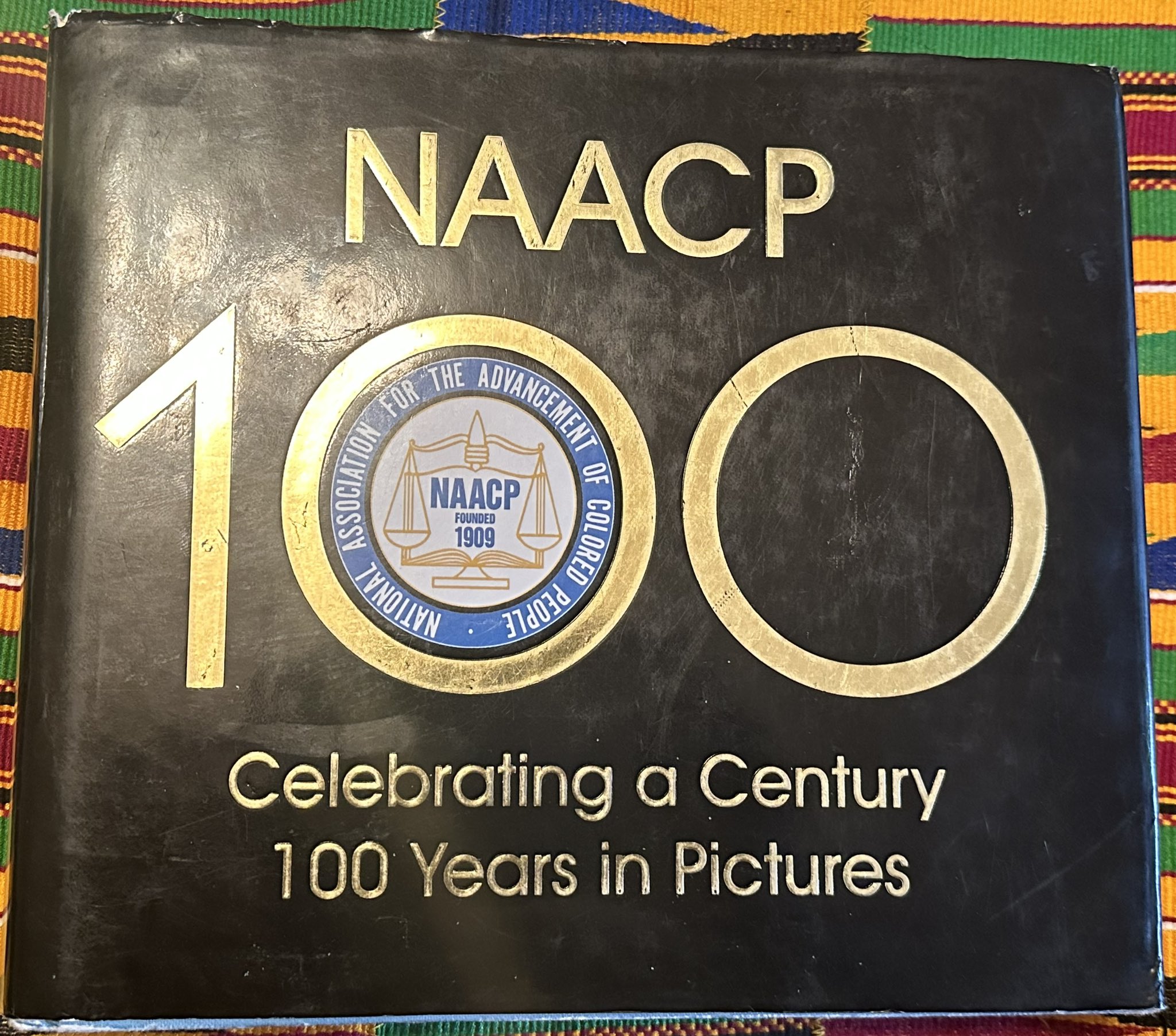
Day 12, Book 12: Houston A. Baker Jr’s 2008 book “Betrayal,” a 2008 reflection on the emergence and shaping of contemporary Black US “public intellectuals” from an elder with intimate knowledge and experience. Helps explain much happening before and since.
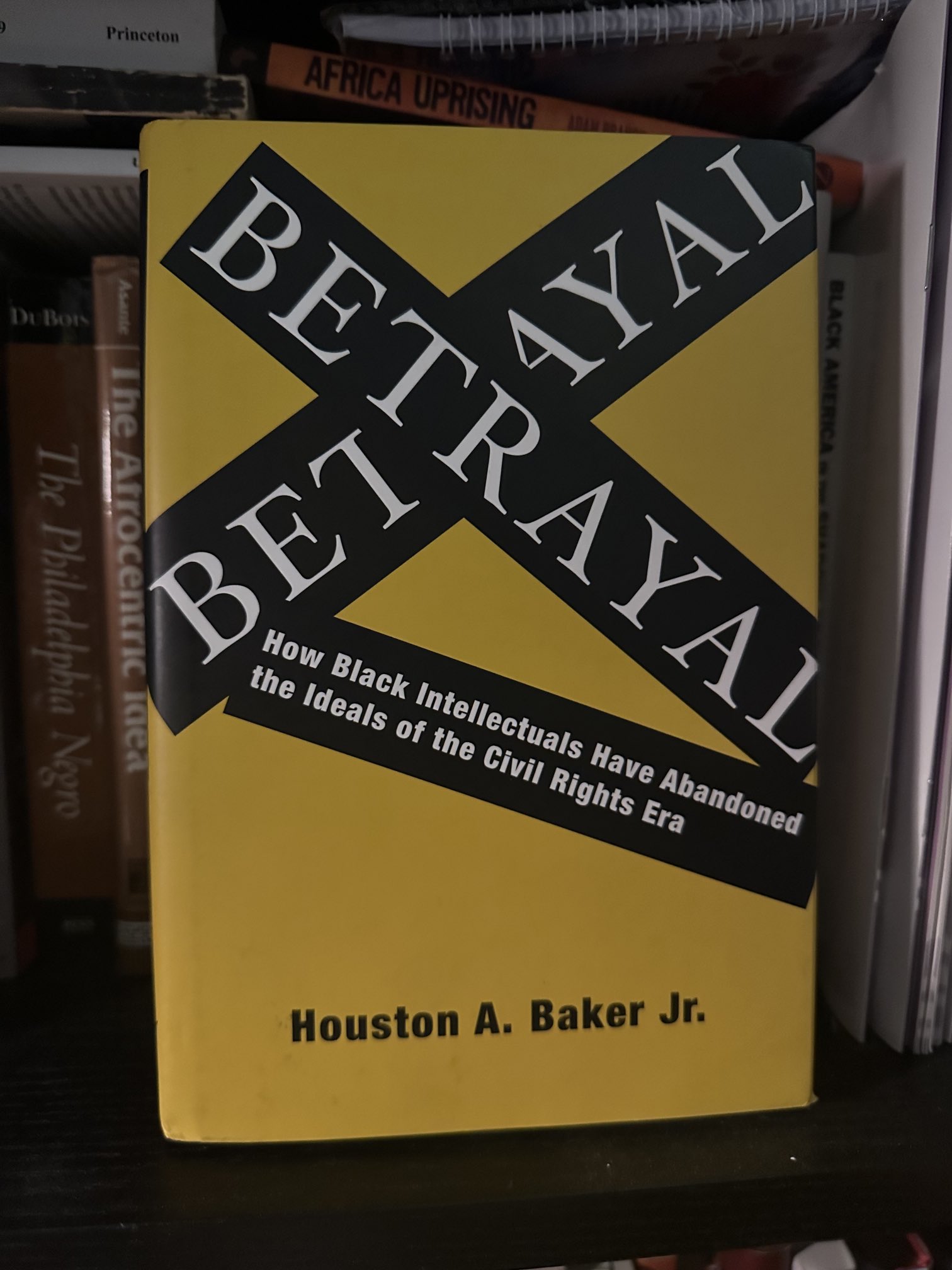
Day 13, Book 13: W.E.B. Du Bois’s 1915 book “The Negro,” another in a long line of work confronting “race problems” that does not center oppression as the defining element of Africana. As @CollegeBoard stories continues, a reminder that we’re not new to this.
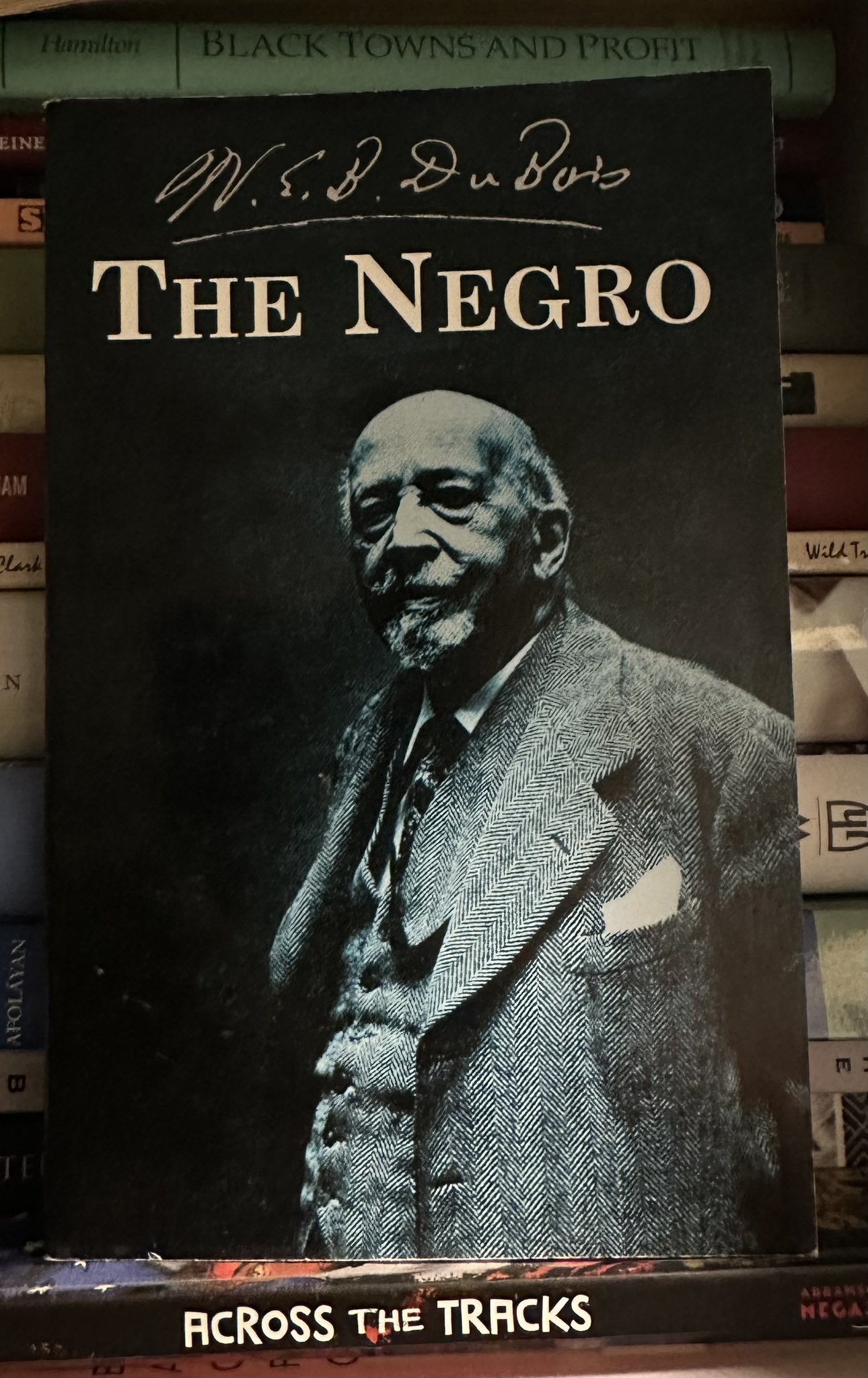
Day 14, Book 14: Jacqueline “Cookie” Hamer’s “Mama Fannie,” an account of her life with Fannie Alma Louise Duboise Townsend Hamer [#MaaKheru ], her Great Aunt Fannie and Great Uncle Pap Hamer legally adopted Cookie and her sister Lenora. A moving read.

Day 15, Book 15: @CollegeBoard AP AfAm Course renews debates on “Africana Studies.” In March 2011, @Soc_Demo published a robust debate that included some actually in the field on what the discipline is and is not. Let’s be clear: https://static1.squarespace.com/static/51e1f764e4b0180cf3bcdc25/t/63ecd3892fc2ab50929eb2bc/1676465033164/Carr-+What+Black+Studies+is+Not.pdf

Day 16, Book 16: Maryemma Graham’s anticipated biography of intellectual worker, @MWalkerCenter institution builder and @JacksonStateU#HBCUMasterTeacher Margaret Walker Alexander, “The House Where My Soul Lives.” Walker is a model of living “for our people”
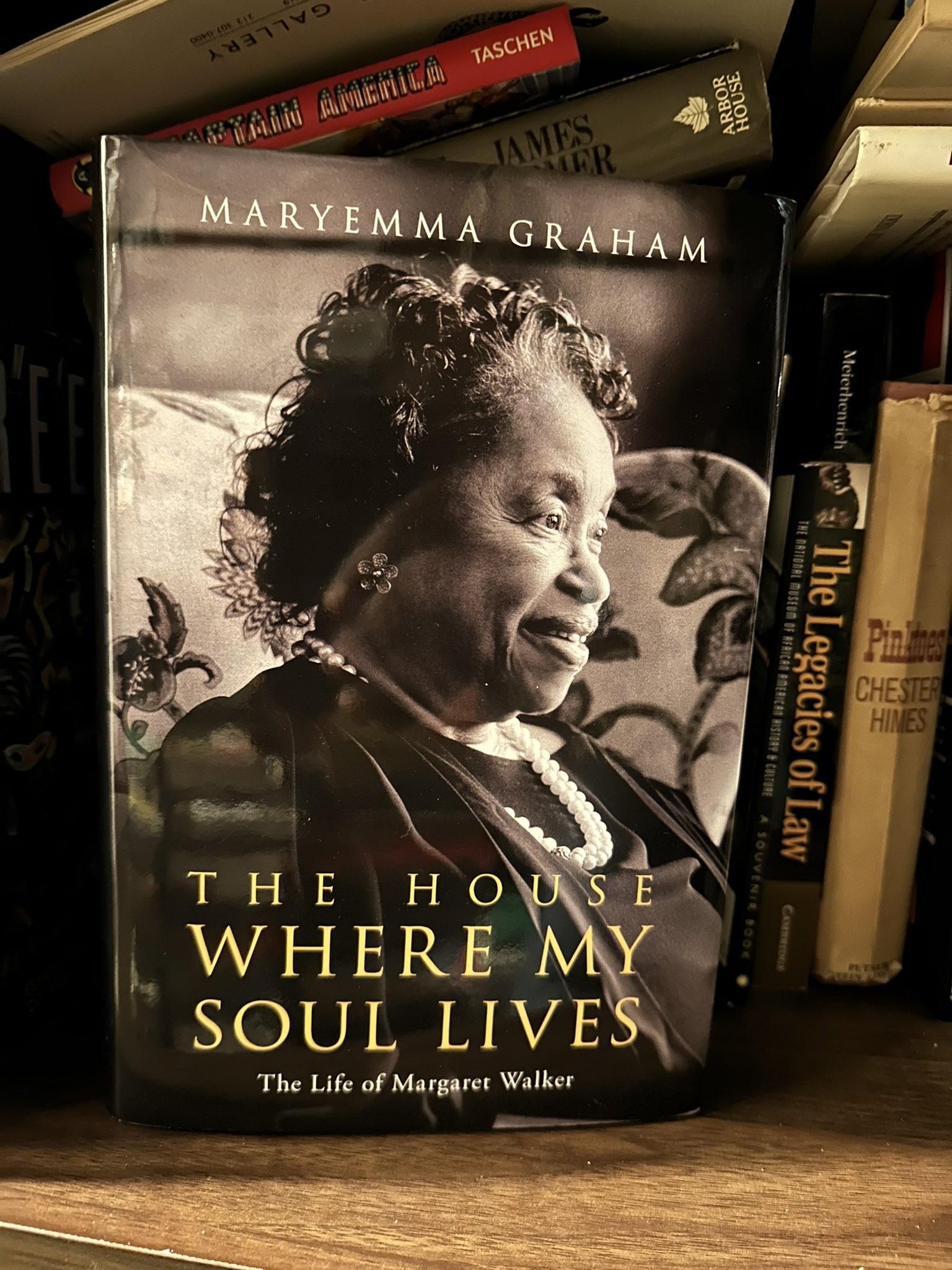
Day 17, Book 17: “The Pan-African Pantheon,” an 8 part, 38 chapter survey of concepts, movements and key thinkers who extracted and advance/d the most powerful concept joining African people together in the contemporary era of European global racialization.
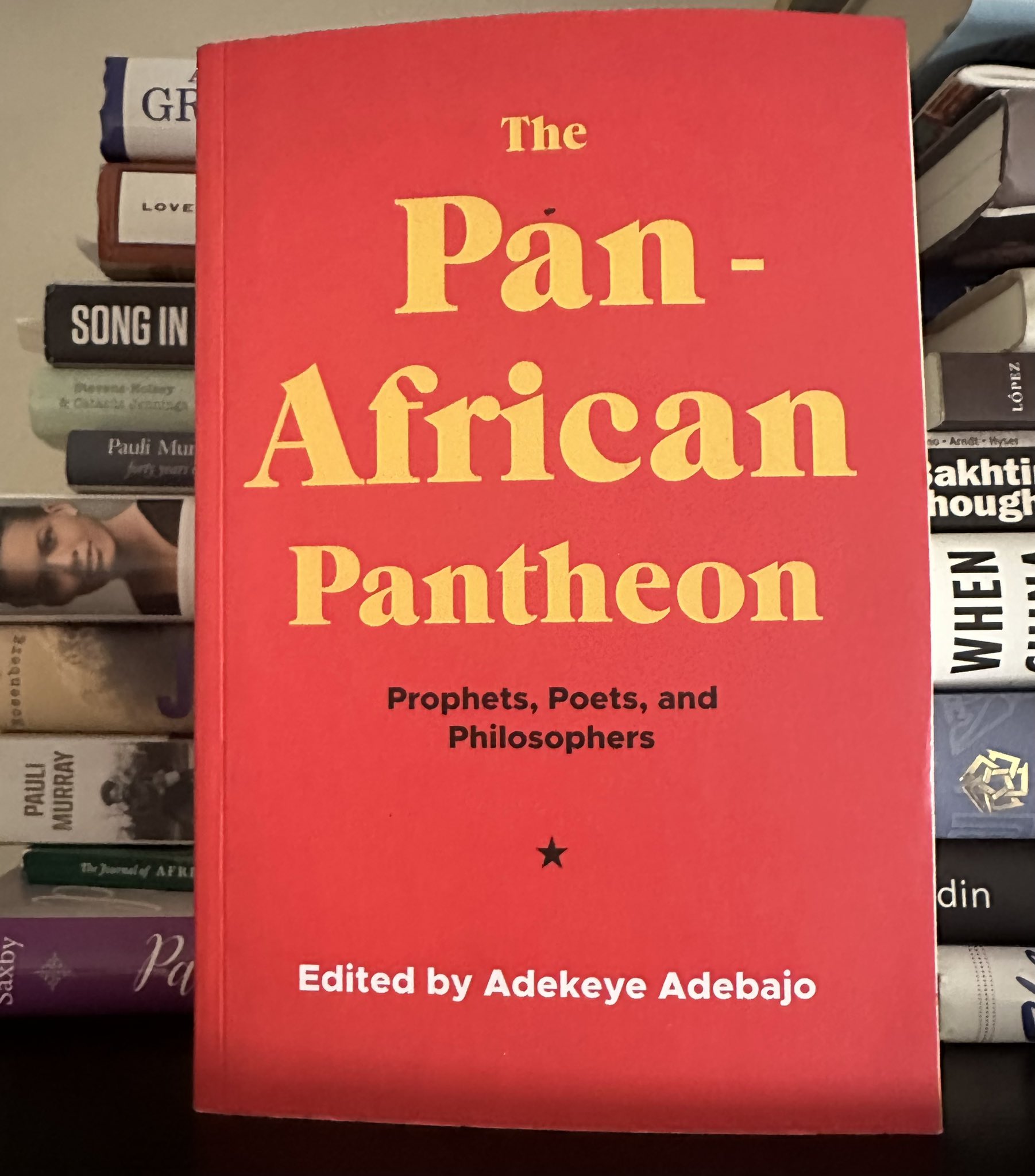
Day 18, Book 18: “The Source of Self-Regard,” a 2019 collection of essays, speeches and meditations by #ToniMorrison in honor of her 92nd birthday. Join @karenhunter
and I today @inclasswithcarr. We, the #Knubia fam and you will think with her.
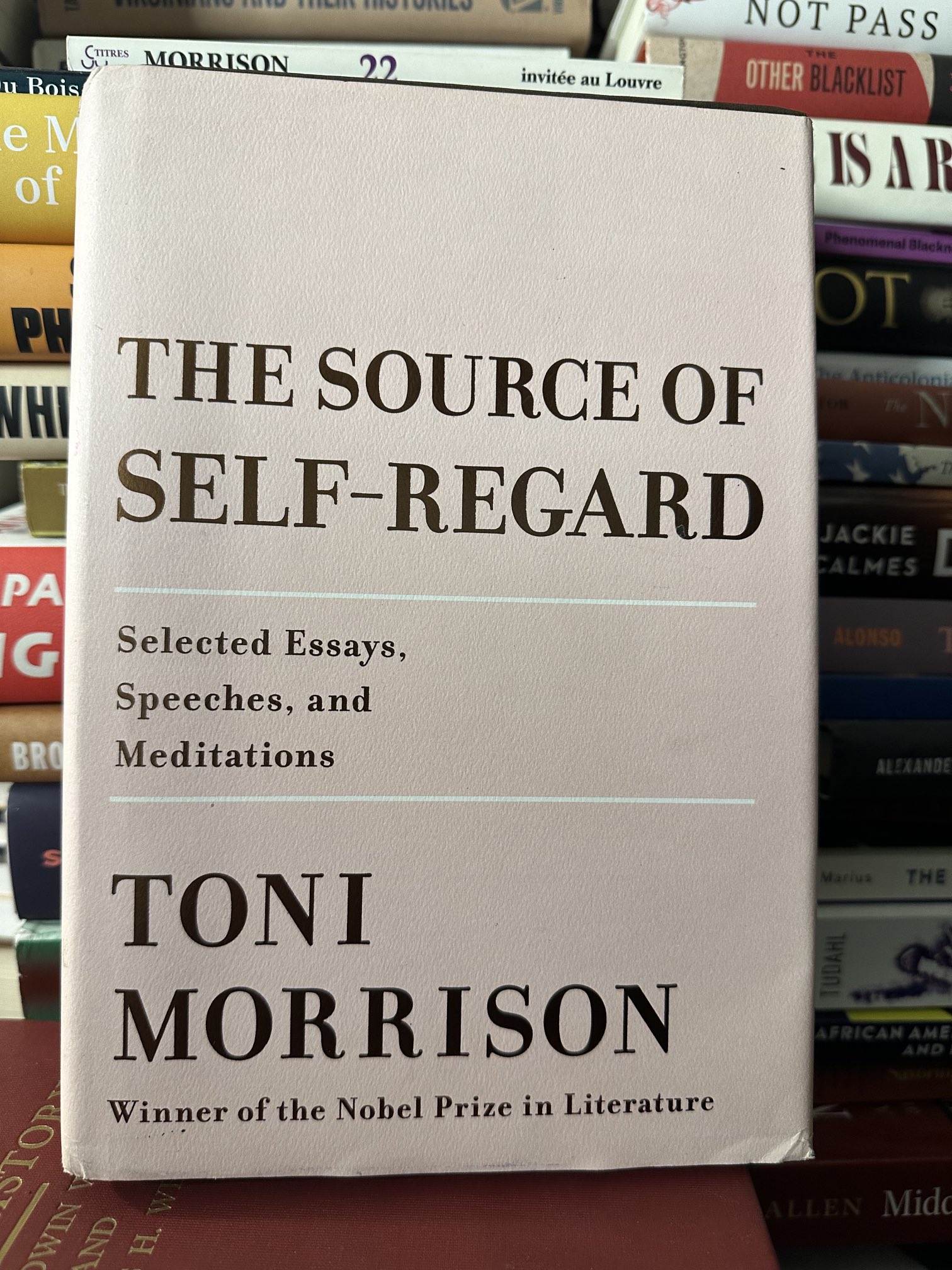
ay 19 Book 19: @GeneJarrett ‘s 2022 biography of Paul Laurence Dunbar, “The Life and Times of a Caged Bird.” @karenhunter sparked a conversation @inclasswithcarr this week about how we often distinguish art from the artists who make it.
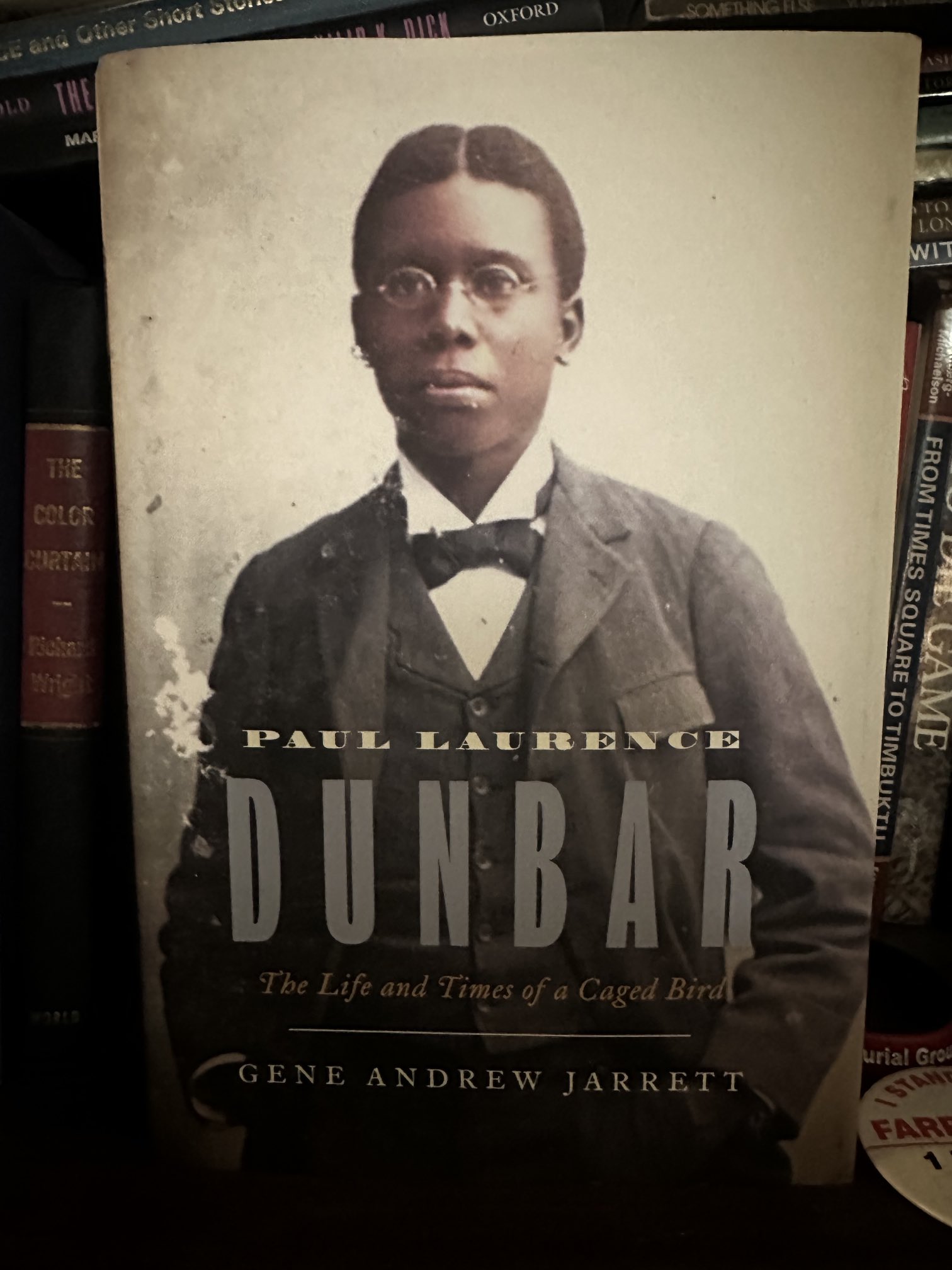
Day 20, Book 20: “Black Cotton Star,” a graphic novel of Black struggle set in 18th & 20th century war. On #PresidentsDay , US holiday begun in celebration of its enslaver “father” #GeorgeWashington ’s birthday, reminder that Africans have different objectives.

Day 21, Book 21: On the 58th anniversary of the assassination of #MalcolmX , John Henrik Clarke’s edited “Malcolm X: The Man and His Times,” a collection of speeches by Brother Malcolm and reflections largely from his friends, comrades and associates.
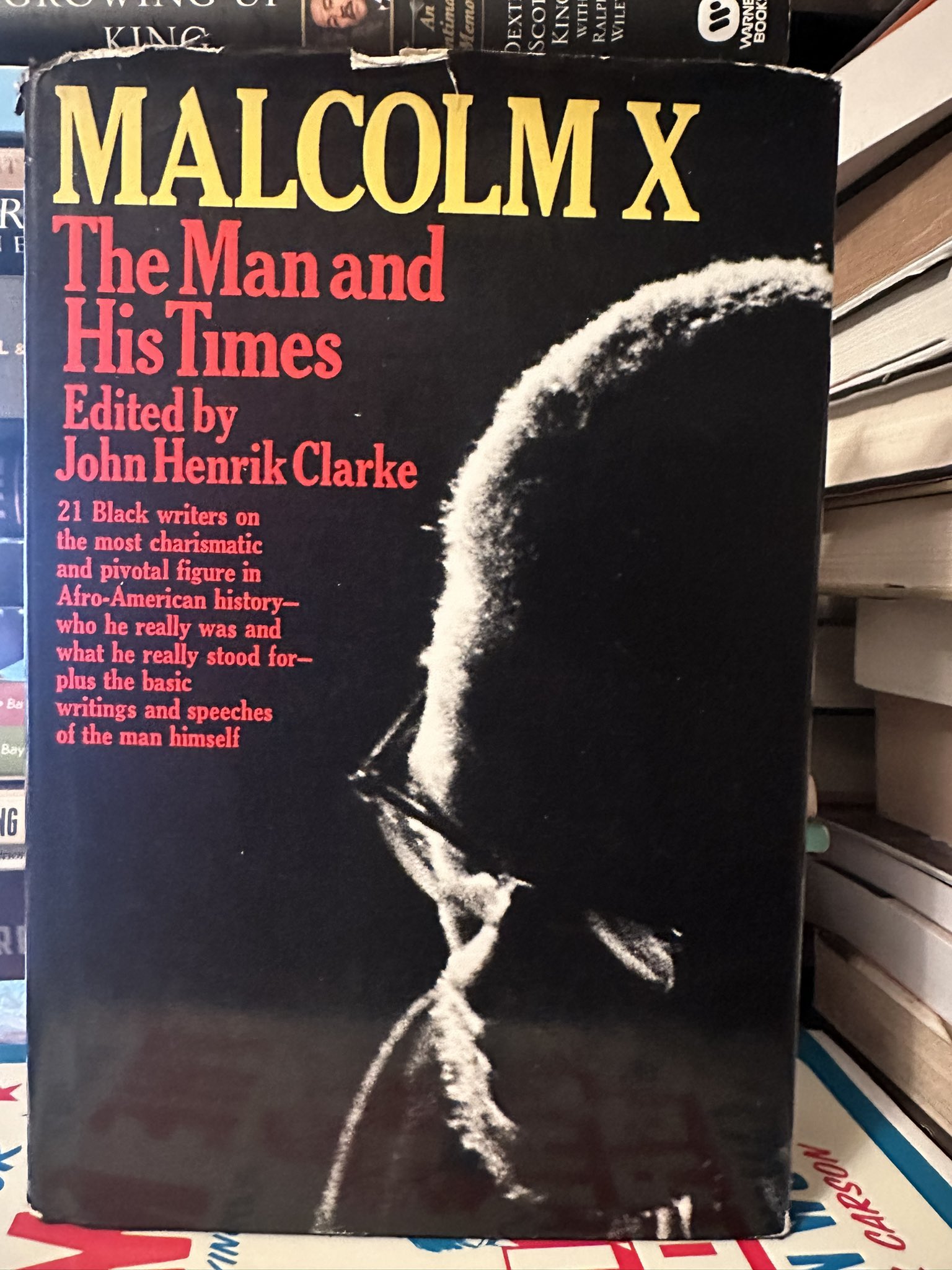
Day 22, Book 22: “Breaking Barriers,” DeWitt Williams’s tracing of the lives, times and legacies of Eva Beatrice Dykes, Georgianna Rose Simpson and Sadie Tanner Mossell Alexander, the first three African women to take PhDs in the US. All Black community-formed.
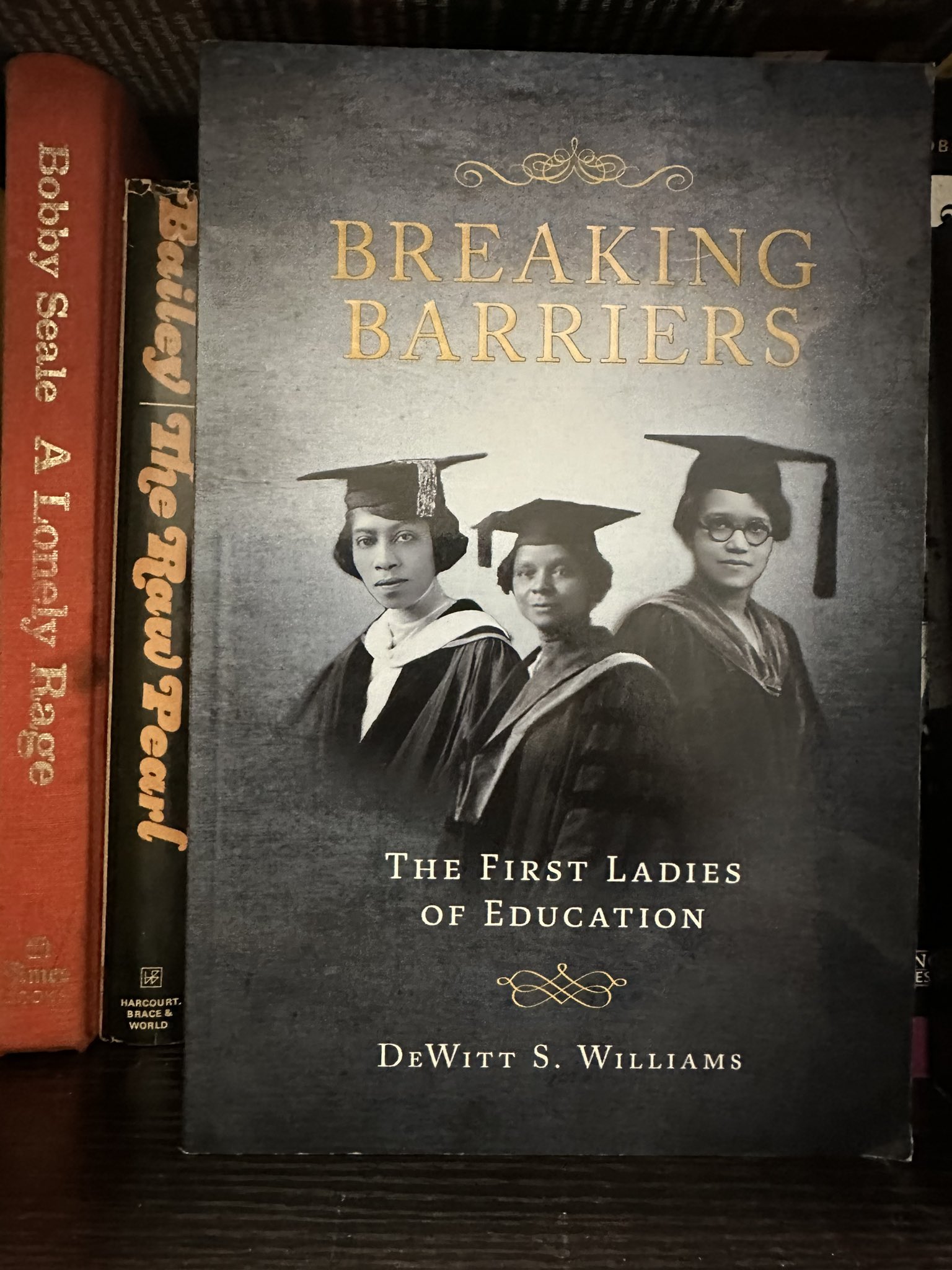
Day 23, Book 23: Shirley Graham Du Bois’s memoir of her husband, #WEBDuBois and their joint lives and life works. A testament to love, struggle and moving through a hostile world system as liberated partners joining others in an unyielding fight to make better.
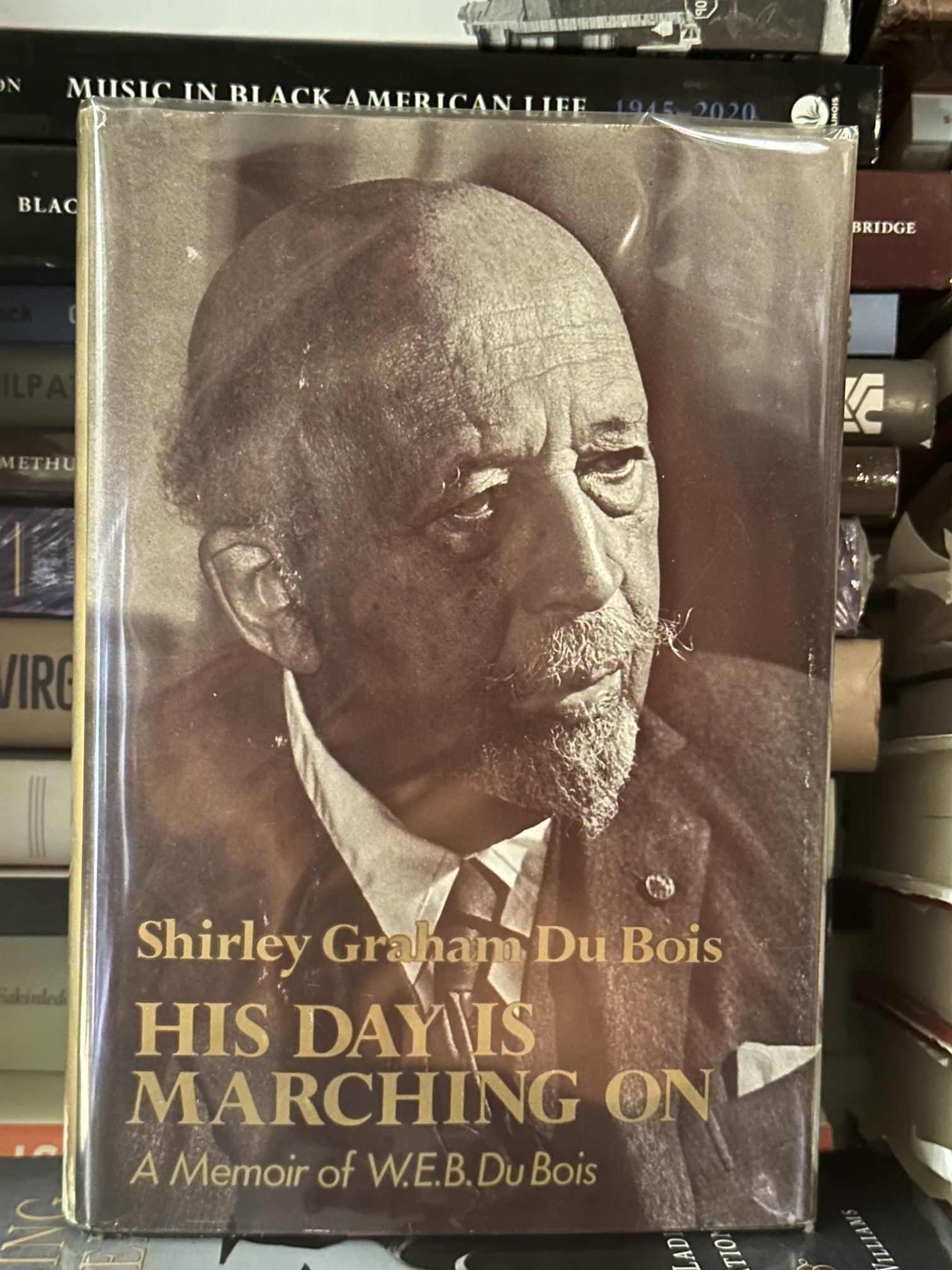
Day 24, Book 24: For “50 year anniversary” rituals marking the genre, @Jpdabrams ‘s five hundred page oral history of Hip Hop, “On The Come Up.” Over three hundred interviews with the full range of cultural meaning-makers, across a full arc of the topic.
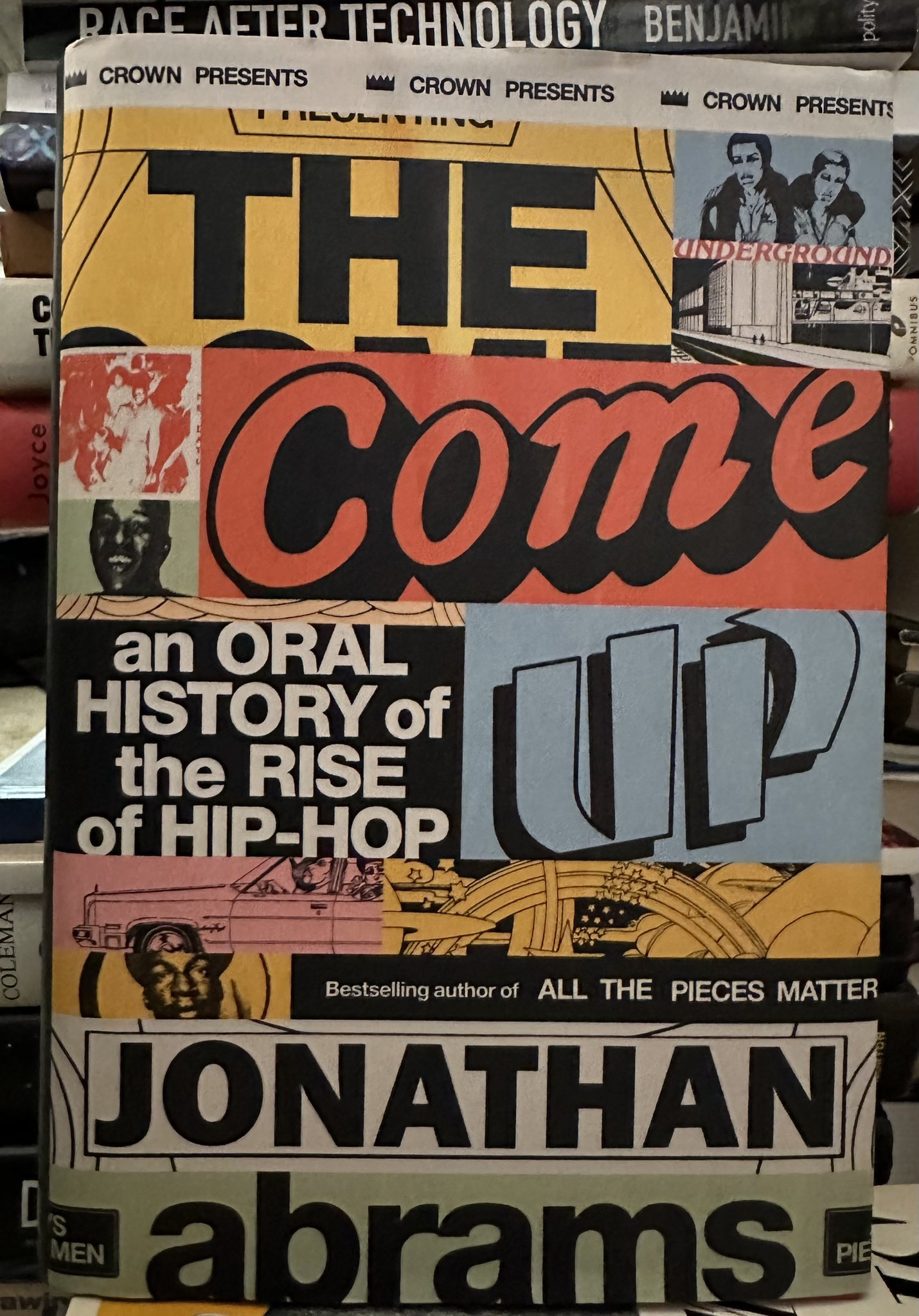
Day 25, Book 25: “Stayed on Freedom,” a story of contemporary African liberation seen in & through the lives, times & work of @GZoharah & Michael Simmons, their family and comrades, crafted by @dnbrgr. @SNCCLegacy @snccdigital
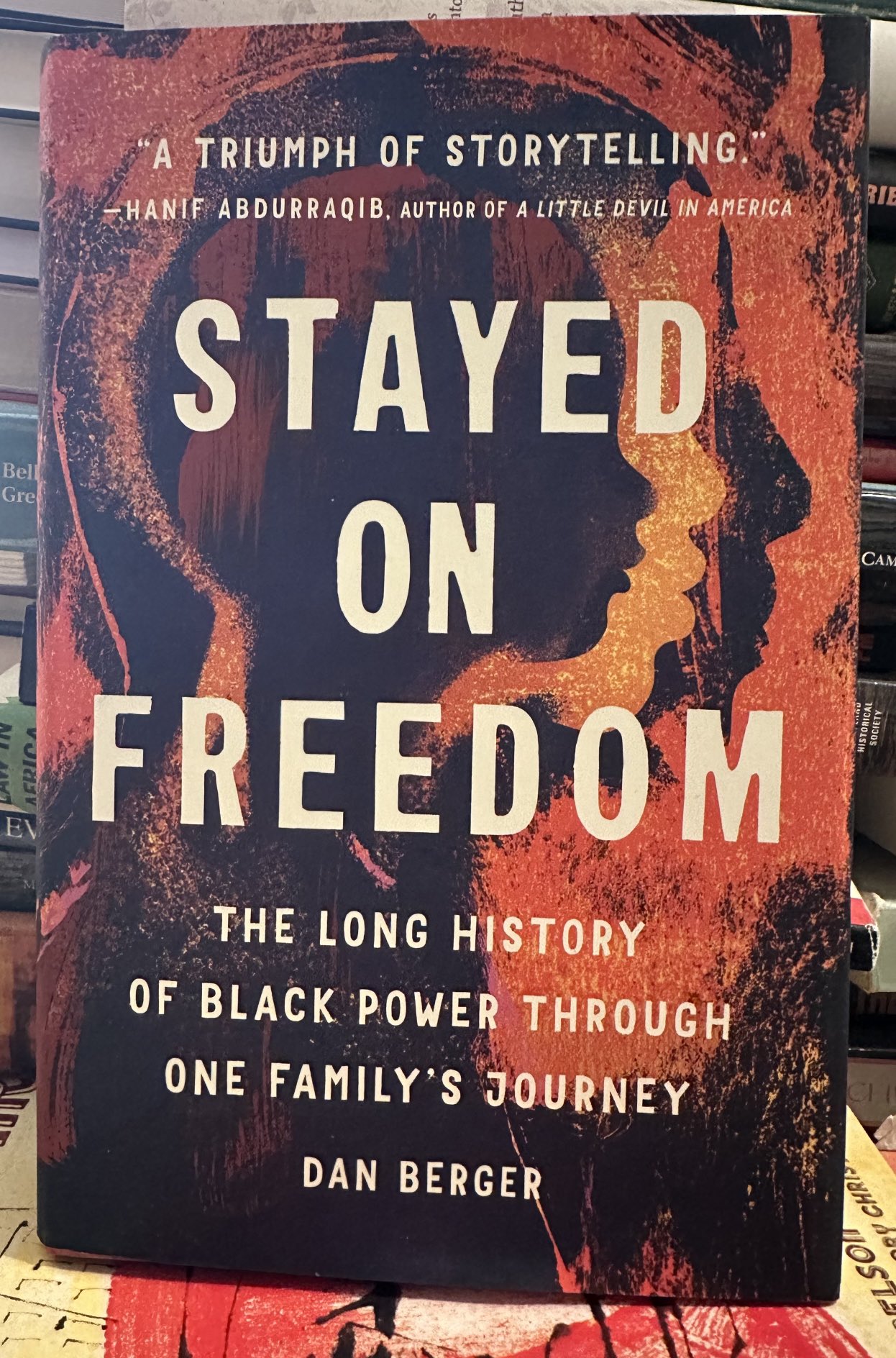
Day 26, Book 26: “The Postcolonial State in Africa,” a largely non-ideological survey of post-liberation continental African state formation. As hugely important #NigerianElections unfold with ruling party desperate to stay in power, good time to get informed.

Day 27, Book 27: Kaba Kamene’s biography of #HBCUMasterTeacher and pioneering Africanist William Leo Hansberry, including interviews with his family and colleagues’ and 2 key pieces from his papers. Last week’s
@HansberrySoc Symposium lifted this giant’s work.
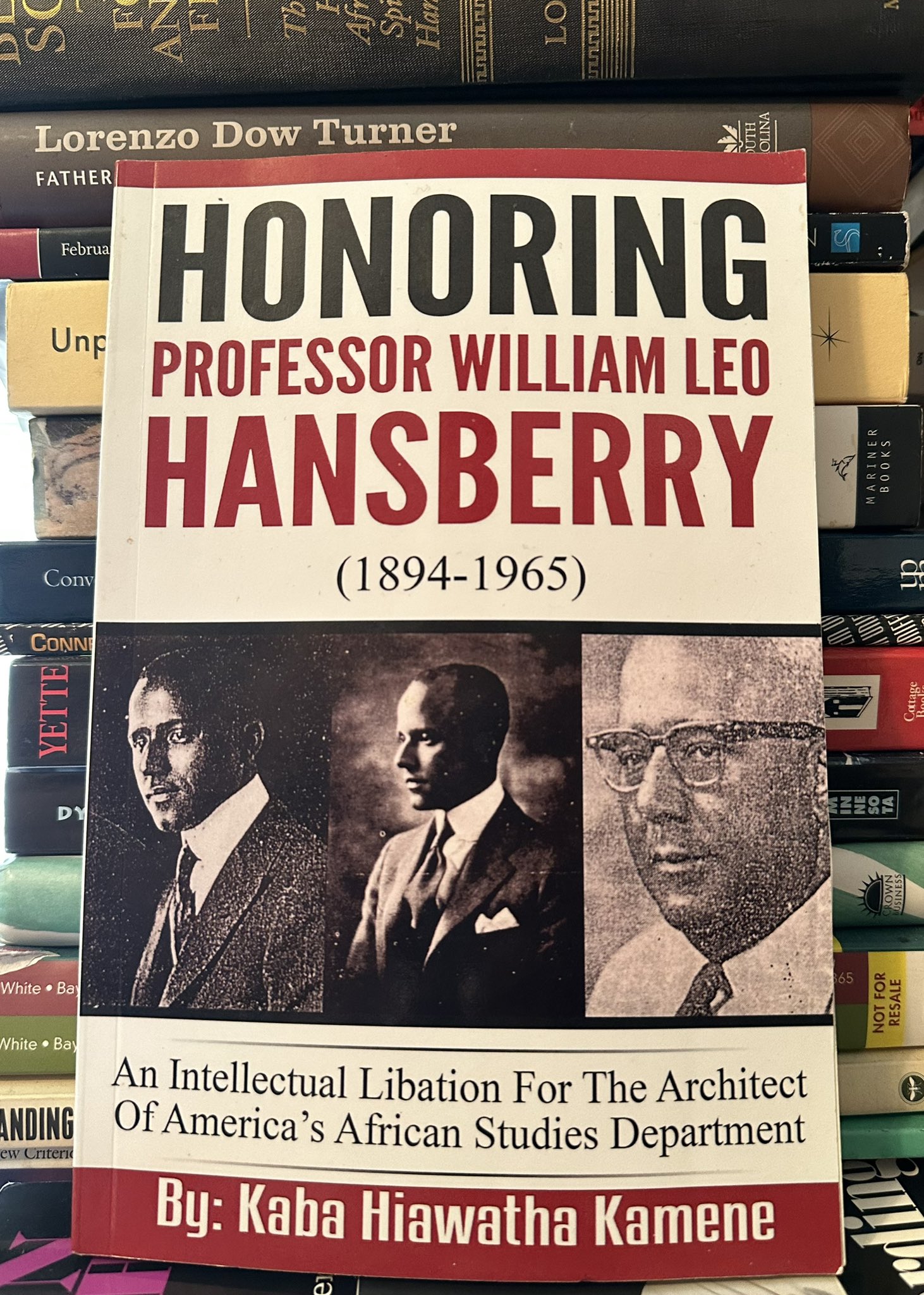
Day 28, Book 28: Carter Woodson’s “Negro Makers of History,” first published in 1928. He says: “Americans should study Africans to understand better their descendants in this country. The American Negro has been misunderstood.” Then and now, Baba. We fight on.

Book titles from article’s featured image from left to right:
Nile Valley Contributions To Civilization by Anthony T. Browder
The Healing Drum by Yaya Diallo
Modern Africa by Basil Davidson
Capitalism & Slavery by Eric Williams
The Healing wisdom of Africa by Malidoma Patrice Somé
After God is Dibia by John Anenechukwu Umeh
African Holistic Health by Llaila O. Afrika
Post Traumatic Slave Syndrome by Joy Degruy
Kebuka by Mwalimu K. Bomani Baruti
Centered by Mwalimu K. Bomani Baruti
Afrikan People and European Holidays: A Mental Genocide by Ishakamusa Barashango
Essays in Ancient Egyptian Studies by Jacob H. Carruthers
Light from Ancient Africa by Na’im Akbar
The Teachings of Ptahhotep by Hilliard, Williams, Damali
Let the Circle Be Unbroken by Marimba Ani
The Isis Papers by Frances Cress Welsing
The African Origin of Civilization Myth or Reality by Chiekh Anta Diop
Remembering the Dismembered Continent by Ayi Kwei Armah
The Husia by Maulana Karenga
The Mis-Education of the Negro by Carter G. Woodson
Things Fall Apart by Chinua Achebe
YURUGU An Afrikan Centered Critique of European Cultural Thought and Behavior by Marimba Ani
Half of a Yellow Sun by Chimamanda Ngozi Adichie
The Philosophy and Opinions of Marcus Garvey by Amy Jacques Garvey
